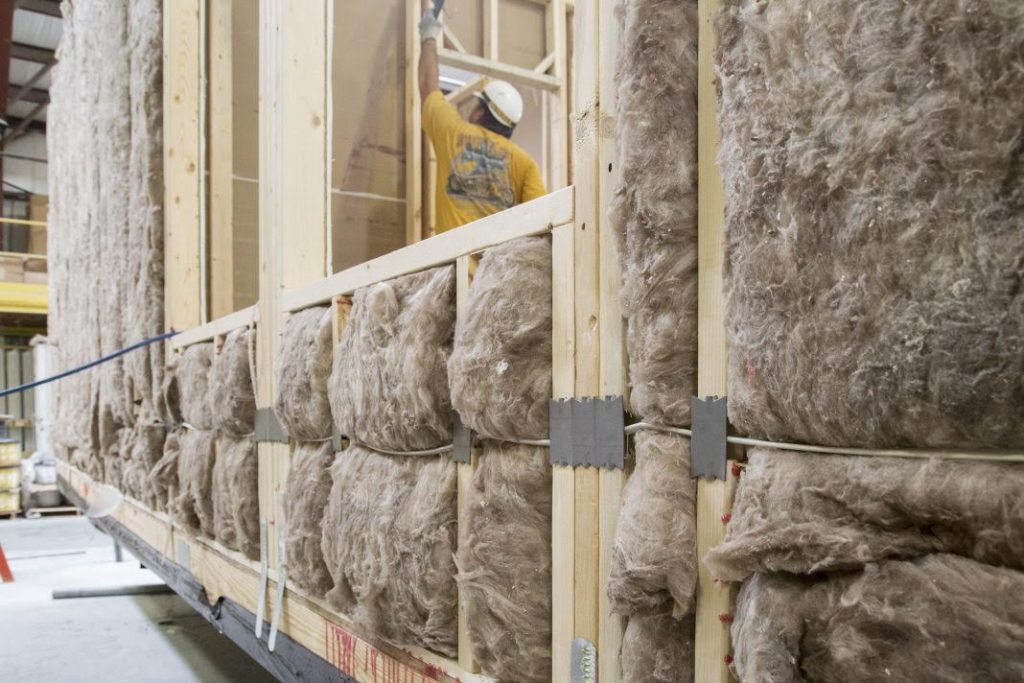How Much Does It Cost To Move A Mobile Home In 2024?
Smartsites webuser
may 24, 2024

Moving a mobile home involves several variables that influence the overall cost. When planning a move, it’s essential to consider factors like distance, the size of the home, and required permits. How much does it cost to move a mobile home typically ranges from $1,000 to $8,000 for local moves, but this can increase significantly for longer distances.
Ignite MHC recognizes the importance of maintaining affordability during significant life changes like moving. Our selection of affordable manufactured homes not only provides a cost-effective housing option but also reduces the financial strain of relocation. We ensure each home is strategically located and supported by comprehensive customer care to streamline your moving process.
Mobile Home Size and Weight Directly Determine Moving Costs
The cost to move a mobile home primarily depends on its size and weight. Larger and heavier homes require more resources for transportation, such as additional labor and specialized equipment, thus increasing the overall expense. Typically, a single-wide mobile home costs less to move compared to a double-wide because it demands fewer resources. Weight factors in as heavier homes necessitate stronger transportation equipment and sometimes additional permits, reflecting in a higher price point.
Transporting a mobile home involves various complexities that hinge on its structural dimensions. For instance, homes exceeding standard width or height pose logistical challenges, necessitating road closures or route modifications that can escalate costs. Such operations require precise planning to ensure safe transit, influencing the overall financial outlay. Each component of the home’s structure, from width to weight, plays a critical role in defining the cost of moving.
Cost variations also arise from the physical condition of the mobile home. Older or poorly maintained homes might need additional prep work or repairs before and after transit to ensure they withstand the move, further adding to the costs. This preparation might include reinforcing the structure or upgrading elements that are not travel-ready, ensuring the home remains intact during the move.
Travel Distance Significantly Impacts the Final Expense of Relocation
The distance over which a mobile home must be transported significantly affects the total moving cost. Shorter relocations are generally less expensive due to lower fuel costs and fewer hours of labor. However, moving a home across long distances involves not only increased fuel and labor costs but also higher risks and potential road tolls, which accumulate to elevate the overall expense.
Cost estimation for moving a mobile home over long distances requires considering multiple logistical aspects. Coordination with local authorities for permits across different jurisdictions, planning for potential overnight stops, and managing route-specific challenges like narrow roads or low bridges are integral to the process. These factors require thorough investigation and strategic planning to ensure a smooth relocation, impacting the total cost.
The season in which the move occurs can affect the cost. Peak moving seasons may see higher prices due to increased demand for moving services. Additionally, adverse weather conditions during certain times of the year can complicate transportation, potentially leading to delays and increased costs. Understanding these temporal dynamics is essential for budgeting and planning an efficient mobile home relocation.
Permit Requirements Vary by State, Influencing Total Moving Costs
Obtaining the necessary permits is a crucial component of the mobile home moving process, with costs and requirements varying significantly from state to state. Each jurisdiction may have specific regulations regarding the transportation of oversized loads, impacting the overall planning and cost. For instance, some states require escorts and special route planning for large mobile homes, adding to the relocation expenses.
The complexity of securing these permits should not be underestimated. The process involves understanding local laws and regulations, which can be time-consuming and sometimes require the assistance of professionals who specialize in such legalities. This preparation is crucial to avoid legal issues that could arise from non-compliance with state regulations, leading to fines or delays that would further increase the moving costs.
The variability in permit costs across different states can affect the budgeting for the move. In some areas, the fees for obtaining the necessary permits might be relatively low, while in others, the costs could be significant, especially if multiple permits are required for crossing through various states. Prospective movers should thoroughly research these aspects to prepare adequately for the financial impact of their relocation plans.
Professional Setup Services at Destination Increase Overall Moving Expenses
The inclusion of professional setup services at the destination significantly raises the total expenses involved in moving a mobile home. These services, which may include the foundation setting, utility connections, and final assembly, require skilled labor and technical knowledge, leading to higher labor costs. The complexity of the setup process varies based on the mobile home’s design and the destination site’s requirements, influencing the final cost.
Setup services often extend beyond mere placement and assembly of the mobile home. Professionals must ensure that the home complies with local building codes and regulations, which can involve additional inspections and modifications. Such compliance is crucial not only for the safety and stability of the home but also for legal habitation, adding layers of complexity and cost to the setup process.
The terrain and accessibility of the installation site can impact the expense. Sites that are difficult to access or require significant preparation work, such as leveling and the construction of support structures, can substantially increase costs. These factors necessitate detailed pre-move surveys and planning to anticipate the challenges and resources required, ensuring a smooth and compliant installation.
Seasonal Variations Affect Availability and Price of Moving Services
Seasonal variations play a crucial role in the availability and pricing of mobile home moving services. During peak relocation periods, typically in late spring through early fall, demand for moving services increases, leading to higher prices. Movers seeking to relocate during these times should anticipate higher rates and potentially longer waiting times for service availability due to the high volume of moves.
Conversely, the off-peak seasons, usually in late fall and winter, might offer lower prices due to decreased demand. However, moving during these times can come with its own set of challenges, such as inclement weather conditions, which can hinder transportation and setup processes. The risk of delays and additional protective measures can offset some of the cost savings achieved from lower seasonal rates.
The choice of when to move a mobile home should consider both cost and logistical practicalities. Potential movers must balance the benefits of lower costs in the off-season against the possible complications of weather and reduced service availability. Planning the move with these factors in mind will help in securing efficient, cost-effective service.
Insurance Costs Ensure Financial Protection During Mobile Home Transport
Insurance coverage is essential to provide financial protection during the transportation of a mobile home. The cost of insurance varies depending on the value of the home and the specifics of the move, such as distance and route. Comprehensive insurance covers potential damages during transit, ensuring that any mishaps leading to repair needs are financially covered, which is crucial for protecting the investment in the mobile home.
The decision on the extent of insurance coverage should be informed by the risks associated with the move. Factors such as the home’s age, condition, and the complexity of the route can increase the likelihood of incidents. Opting for higher coverage can mitigate these risks, providing peace of mind but at a higher cost. It is a crucial consideration for ensuring that unexpected events do not lead to significant financial loss.
Site Preparation Fees Contribute to Expenses Before Arrival
Before a mobile home arrives at its new location, the site must be adequately prepared, which involves incurring certain fees. These preparation tasks might include clearing the land, ensuring level ground, and installing necessary utilities such as electricity, water, and sewage systems. Each of these tasks requires labor and possibly heavy machinery, contributing significantly to the overall costs of moving.
The extent and cost of site preparation can vary widely depending on the condition of the land and local regulations. For instance, some sites may require extensive excavation to remove debris or to level the area, which can be costly. Additionally, the need to adhere to local building codes can introduce the need for professional consultations and possibly adjustments in plans, adding to the expenses.
Roadworthy Inspections Mandatory, Add to Pre-Move Preparation Costs
Ensuring that a mobile home is roadworthy before relocation is a mandatory step, adding to the overall moving expenses. These inspections check the structural integrity and safety of the home for transport, identifying any necessary repairs to prevent potential issues during the move. The cost of these inspections can vary, but they are essential for both legal compliance and the safety of the transport process.
During the inspection, professionals assess various aspects of the mobile home, such as the condition of the chassis, wheels, and towing setup. Necessary repairs identified during these inspections must be completed prior to the move, leading to additional costs. These preventive measures are crucial for avoiding more significant expenses or safety issues during transportation.
The frequency of required inspections can add to costs, especially for older or previously relocated homes. These homes may require more extensive assessments to ensure they meet all transportation standards, potentially leading to higher upfront costs. However, investing in thorough inspections mitigates the risk of costly disruptions during the move, emphasizing their importance.
Special Equipment Rental for Larger Homes Raises Moving Price
The relocation of larger mobile homes often necessitates the rental of special equipment, which can significantly increase the moving costs. Equipment such as heavy-duty trailers, cranes for lifting sections of the home, and pilot vehicles for escorting oversized loads are typically required for larger homes. The rental costs for this equipment are influenced by the size of the home and the complexity of the move.
Larger homes not only require more robust equipment but also may demand modifications to the transport setup, such as additional axles or reinforced towing mechanisms. These modifications ensure the safety and stability of the move but come with higher rental and setup costs. Additionally, the need for specialized equipment often requires the hiring of operators with specific skills, further increasing labor costs.
The logistical challenges associated with moving larger homes also extend to route planning. Routes must accommodate the dimensions and weight of the equipment and the home, potentially requiring alterations to infrastructure or the acquisition of special transit permits. These requirements add layers of complexity and cost to the moving process, making it essential to plan thoroughly and budget accordingly for the use of special equipment.
Streamline Your Transition with Ignite MHC’s Rental Options
Choosing to rent mobile homes in USA through Ignite MHC offers flexibility and convenience. We provide homes that meet a variety of needs and preferences, backed by a dedicated team to assist with every step of the rental process. Our hands-on support ensures a hassle-free transition into your new home, making the rental option appealing for those seeking a straightforward and stress-free moving experience.
